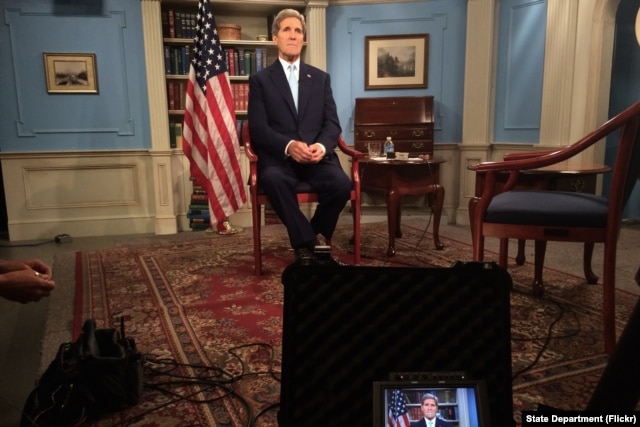UN Security Council Approves Iran Nuclear Deal

WASHINGTON—The U.N. Security Council has unanimously endorsed the agreement Iran and a group of six world powers struck last week to limit the Iranian nuclear program in exchange for sanctions relief.
The 15-member Council quickly voted Monday morning. The five permanent, veto-holding Council members are signatories to the agreement, so the resolution was expected to be adopted.
Now that it has been passed, the deal goes into effect after no later than 90 days. The next key milestone comes after the U.N. nuclear watchdog – the International Atomic Energy Agency – issues a report, expected in December, on the resolution of past and present issues with Iran’s nuclear program. That is when Iran would see relief from the sanctions that have hurt its economy.
The U.N. vote comes as U.S. lawmakers begin their own review of the agreement.
President Barack Obama’s administration sent it to Congress on Sunday, setting off a 60-day review period. Lawmakers can choose to approve the deal or reject it and refuse to lift congressionally-imposed sanctions against Iran. Obama has said he would veto any rejection.
Republican Senate Majority Leader Mitch McConnell predicted President Obama will have a “real challenge” getting the pact through a skeptical, Republican-led Congress, and criticized it as “the best deal acceptable to Iran, rather than one that might actually end Iran’s nuclear program.»
Selling the deal
U.S. Defense Secretary Ash Carter is on a tour of the Middle East as part of efforts to ease fears about the nuclear deal. Carter began the trip in Israel Sunday and will travel to Saudi Arabia, Iran’s main regional rival, as well as Jordan.
On Tuesday, Carter will meet with Israeli Prime Minister Benjamin Netanyahu who has called the deal a «historic mistake» that would only make it easier for Iran to back its proxies in the Middle East.
Saudi Arabia has officially said it supports the deal, although it is also thought to have similar concerns to Israel’s that the agreement will enhance the Shi’ite power’s influence across the Middle East.
“One of the reasons this deal is a good one is that it does nothing to prevent the military option… which we are preserving and continually improving,” Carter told reporters en route to Tel Aviv. “But the point of the nuclear deal is to get the result of no Iranian nuclear weapon without carrying out a military strike.”
He said he does not expect to change Israeli officials’ minds about the deal, but said the two countries could “agree to disagree.”
U.S. Secretary of State John Kerry settles into his chair in a studio at the Department of State in Washington, D.C., before appearing on the MSNBC program «Morning Joe» on July 17, 2015, to discuss the E.U./P5+1/U.S.-Iranian nuclear deal.
Kerry’s defense
In a series of high-profile television appearances Sunday, U.S. Secretary of State John Kerry addressed the American public for the first time since signing off on the Iran nuclear deal last week.
Kerry said the agreement, which culminated from months of talks between the top diplomats of Iran and the group that includes the U.S., Britain, China, France, Russia and Germany, likely won’t restart diplomatic relations with Tehran.
A visit by the secretary to Iran is «not being contemplated,» Kerry told ABC News’ program This Week.
Iranian reaction
On Saturday, Iran’s Supreme Leader Ayatollah Khamenei commented the deal does not signal cooperation with the U.S. and its allies on other issues, triggering a stern response from Israeli Prime Minister Netanyahu.
«If anyone thought that the sweeping concessions for Iran would bring about a change in its policy, they have received a decisive answer over the weekend…» Netanyahu said Sunday during a weekly Cabinet meeting. «The Iranians don’t even make an effort to hide the fact that they will use the hundreds of billions of dollars they will receive in this deal to arm their terror machine.»
In an interview that aired Sunday, British Prime Minister David Cameron said he isn’t idealistic about what the deal means for diplomatic relations with Iran.
«We shouldn’t be naive or starry-eyed in any way about the regime that we are dealing with. I am certainly not,» he told NBC’s Meet the Press. «I spoke to [Iranian] President Rouhani yesterday and said we want to see a change in approach that Iran takes to issues like Syria and Yemen and to terrorism in the region and we want the change in behavior that should follow from that change. So we are not starry-eyed at all and I would reassure our Gulf allies about that, but actually taking the nuclear weapon issue of the table — that is a success.”


